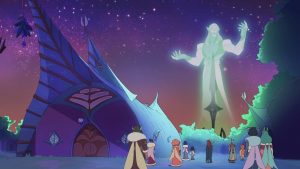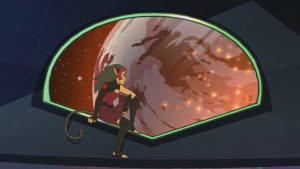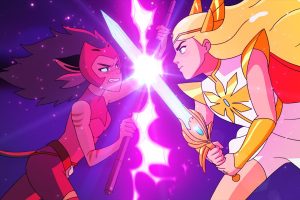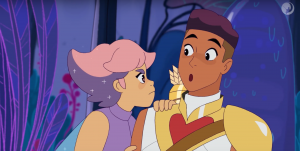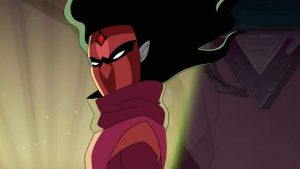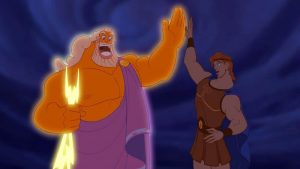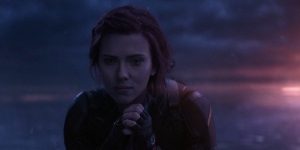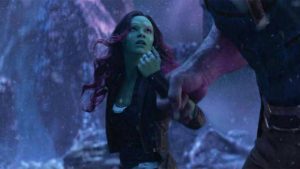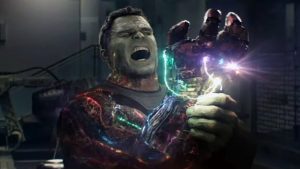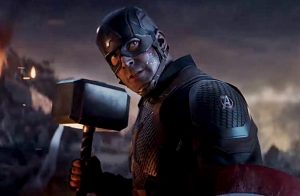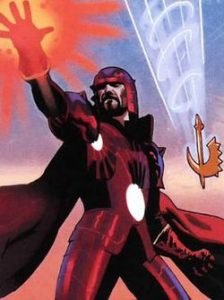
In 2018, during the press tour for Marvel’s upcoming release Black Panther, the film’s star Chadwick Boseman gave a heartfelt interview with SiriusXM Radio during which he shared with viewers a story from his time filming the Afrofuturist superhero epic, which would go on to become a cultural milestone and a critically acclaimed celebration of Black pride and joy. The story was that of two young boys, named Ian and Taylor, both suffering from terminal cancer, whom Boseman had exchanged letters with: the boys were trying to hold out long enough to see Black Panther finally come to life onscreen, but tragically they passed before they had the chance. Boseman broke down in tears while telling the story, but used the moment to talk about the larger cultural impact of Black Panther and the ways in which movies and media can help to empower and inspire communities that often never see themselves represented onscreen in sympathetic roles.
At the time, none of us in the general public knew that Chadwick Boseman had himself been diagnosed with colon cancer just two years prior to that touching conversation. We found that out the hard way last night, when it was announced by Boseman’s family that the star, aged 43, had passed away after an exhausting four-year long battle with the disease, during which he had never ceased in his fight to change Hollywood from the ground up. Last night, we lost a true legend, a man who “radiated power and peace”, whose talent for acting was rivaled only by his talent for effortlessly spreading love, happiness and a sense of pride and dignity to marginalized communities around the globe. As Simu Liu, who would have been his Marvel co-star starting next year, put it: “Without Chadwick, and what he gave to his character, there is no Shang-Chi. Period.”
He was T’Challa, the poised, elegant King of Wakanda that audiences first fell in love with after his thrilling Marvel debut in Captain America: Civil War. But he was also baseball pioneer Jackie Robinson in 42, a role that cemented him as one of the great actors of our time. He was Supreme Court Justice Thurgood Marshall in 2017’s Marshall. He was the “Godfather of Soul”, James Brown, in Get On Up. He was the fictionalized, almost god-like Vietnam War-era soldier “Stormin'” Norman in Da 5 Bloods. He would have been the African samurai Yasuke in an upcoming biopic about the 16th Century warrior. To embody so many of Black history’s most celebrated figures in so little time takes a special kind of dedication and determination – two virtues with which Chadwick Boseman was blessed, beyond a doubt.

It’s been hard for me to process the grief I feel over losing Boseman so early – far too early – to a disease as malignant as cancer, when he clearly had so many years left in him, so much art and talent he still could have shared with the world. But processing this pain has been made easier by seeing the genuine joy that Chadwick Boseman inspired, especially in children who looked up to his persona as the Black Panther, but also in Black audiences of all ages and all walks of life, who saw in that groundbreaking character something so much more than just a Marvel superhero with a flashy suit. Reading the tributes to Boseman from Black individuals for whom Black Panther revitalized their interest and pride in their cultural heritage (whether that expressed itself in the action of wearing traditional African clothing or studying Afrofuturistic philosophies, or anything else in between) has been both powerful and humbling.
In the absence of Boseman’s commanding presence, we are left with the legacy he leaves behind and with the urgent opportunity to carry on with that legacy, thus ensuring that future generations will remember Chadwick Boseman as a true king, an honor he deserves after the hard work he put into each and every one of his performances. At the same time we are left with his incredible body of work, which we must preserve so that it may continue to inspire future generations as it did us. We are also left with a sobering reminder to be kind: several months ago, although it wasn’t known at the time that Boseman was battling cancer, the actor appeared in public for a photo that quickly went viral for all the wrong reasons, with people on social media making jokes about his dramatic weight loss. Words have power, no matter how well-intentioned. It never hurts to be kind.

After winning the Screen Actors Guild Award for an Outstanding Ensemble Cast, the cast of Black Panther, led by Chadwick Boseman, took the stage; and Boseman spoke passionately and eloquently in the space of just a few minutes about the experience of being “young, gifted and Black” in Hollywood at such a crucial time, and how special, how life-changing it was for him to be able to work alongside so many other gifted Black professionals in the business and to give something back to pop culture, something that ultimately redefined the film industry in more ways than he would have ever thought possible. The background music signaling that his speaking time was up played too soon, cutting him off midway through his speech – but Boseman kept talking, refusing to allow that rare, unique, powerful moment to pass until he had made his point loud and clear.
But now, his life and career have been cut short, and he, despite his best efforts to fight colon cancer, is gone too soon: it is understandable and entirely acceptable that many (especially in the Black community) will feel devastated, and will need time for self-care. I cannot and will not dissuade you from taking as much time as you need to absorb this news and process it however you please. But we can’t allow this rare, unique, powerful moment in which we live to pass by either: our world – our society – is at a point where we need to firmly and unequivocally repeat that Black Lives Matter (in our writing, in our speech, in our actions most importantly) until they actually do in the eyes of the law and the institutions that constantly resist that simple statement, or worse, actively seek to violate the freedoms of Black people around the globe, through acts of violence and intimidation. Don’t let the moment pass. Don’t let the music play until we’ve said what has to be said, until we’ve done what needs to be done. Instead, let us all continue to do what Chadwick Boseman would have done: fight to protect Black lives, and fight to see the Black community represented in the media we consume by consuming that media responsibly and uplifting Black voices wherever and whenever possible.

Rest In Power, Chadwick Boseman.

